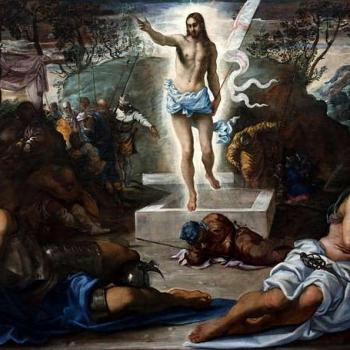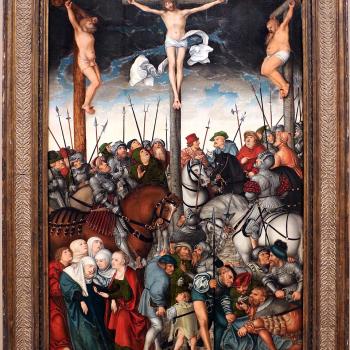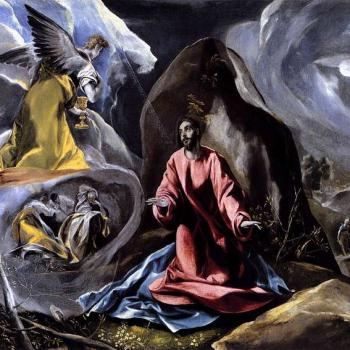The “death of God” is a claim made by Nietzsche and arch-liberal theologians who embrace what they call “Christian atheism.” But Luther and the Lutheran Confessions say that God did die on the cross–for us–by virtue of the Two Natures of Christ. What are the implications of that?
Quoting Luther, from Article VIII, “The Person of Christ,” Formula of Concord Solid Declaration, in Concordia: A Reader’s Edition of the Book of Concord, pp. 588-589:
If it cannot be said that God has died for us, but only a man, we are lost; but if God’s death and a dead God lie in the balance, His side goes down and ours goes up like a light, empty scale. Yet He can also readily go up again, or leap out of the scale! But He could not sit on the scale unless He become a man like us, so that it could be called God’s dying, God’s martyrdom, God’s blood, and God’s death. For God in His own nature cannot die; but now that God and man are united in one person, it is called God’s death when the man dies who is one substance or one person with God.


















